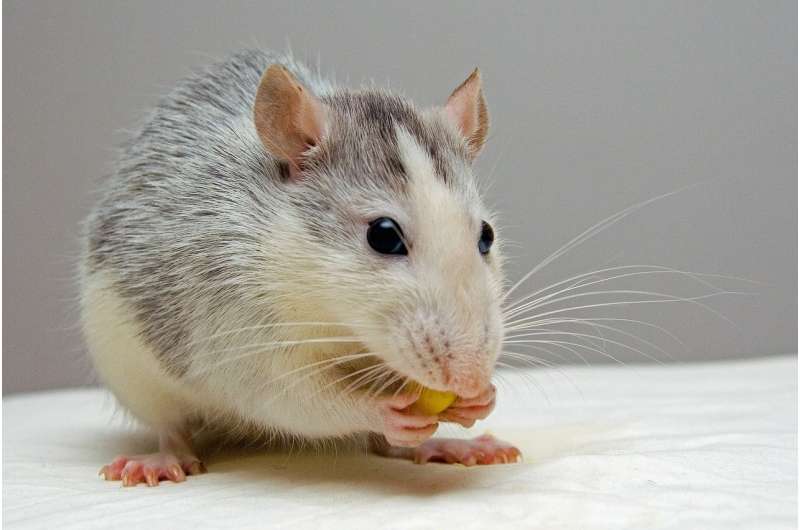April 23, 2019 report
Feeding juvenile rats extra omega-3 PUFAs and vitamin A shown to reduce negative health impact of stress

A team of researchers with members from Italy, Brazil and Ireland has found that giving rats exposed to a stressful environment extra doses of omega-3 fatty acids, resulted in a reduction of the kinds of mental and physical damage that normally occur under such circumstances. In their paper published in Proceedings of the National Academy of Sciences, the group describes their study of rats exposed to stress and what they found.
Prior research has shown that exposure to stress while growing up can lead to long-term adverse health effects such as memory problems, depression, risk addiction and general anxiety. It can also lead to changes in intestinal bacteria levels. In this new effort, the researchers have found that supplementing the diet of juvenile rats exposed to stress with omega-3 fatty acids and vitamin A can reduce the negative health consequences typically seen in such rats.
To learn more about the health effects of stress on rats, the researchers created a stressful environment for a group of tests rats—each was repeatedly isolated and moved to cages holding mice they did not know. Blood and behavior tests showed that the rats had indeed felt stressed and consequently suffered adverse long-term health effects. Those not in a control group were given extra doses of three kinds of omega-3 fatty acids: eicosapentaenoic acid, docosahexaenoic acid, and docosapentaenoic acid. They each got extra doses of vitamin A as well.
The researchers report that the rats that had received supplemental omega-3 fatty acids and vitamin A scored roughly the same as juvenile rats not exposed to the stressful environment on memory and emotional tests and also on physical tests, including intestinal bacterial levels. They further report that they found no sign of the kind of long-term adverse health impacts normally associated with juvenile exposure to a stressful environment.
In conclusion, the researchers suggest that dietary supplements appear to be a way to ward off the negative health consequences often seen in rats associated with growing up in a stressful environment. They note that there is still no evidence the same might be true for humans, but suggest that sources of omega-3 fatty acids are readily available—in fatty fish, as is vitamin A.
More information: Gustavo Provensi et al. Preventing adolescent stress-induced cognitive and microbiome changes by diet, Proceedings of the National Academy of Sciences (2019). DOI: 10.1073/pnas.1820832116
© 2019 Science X Network
















